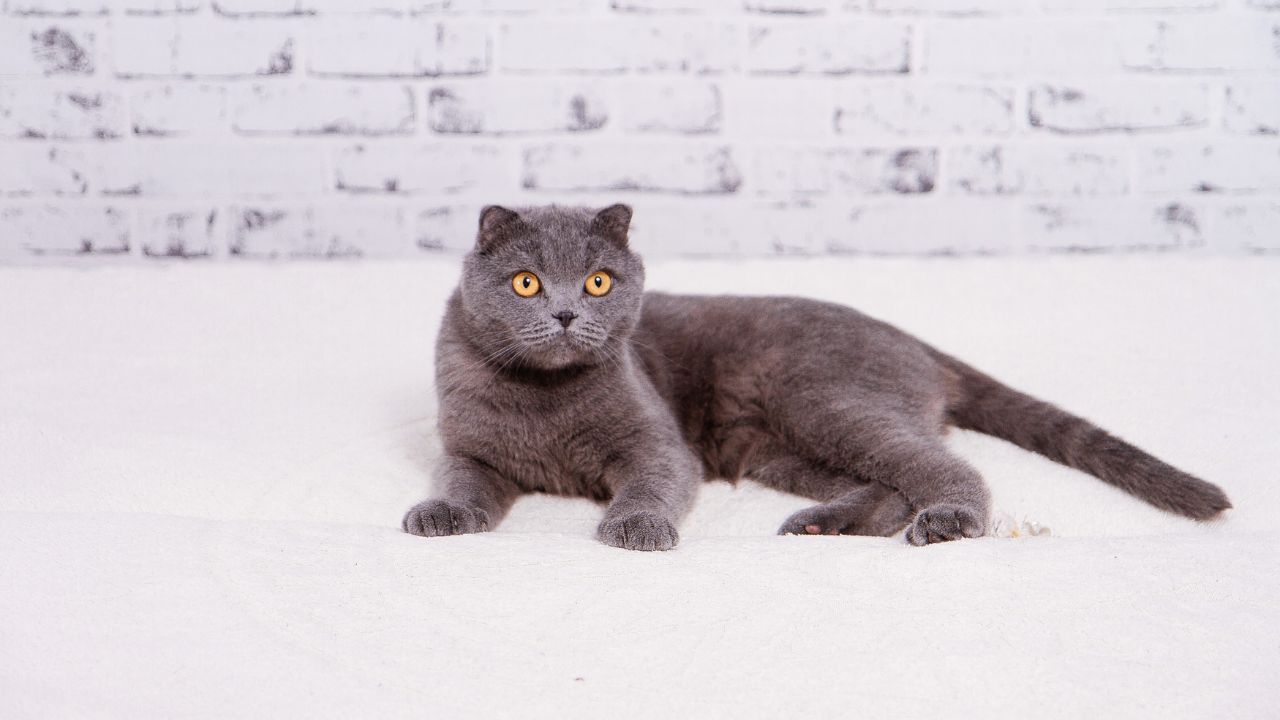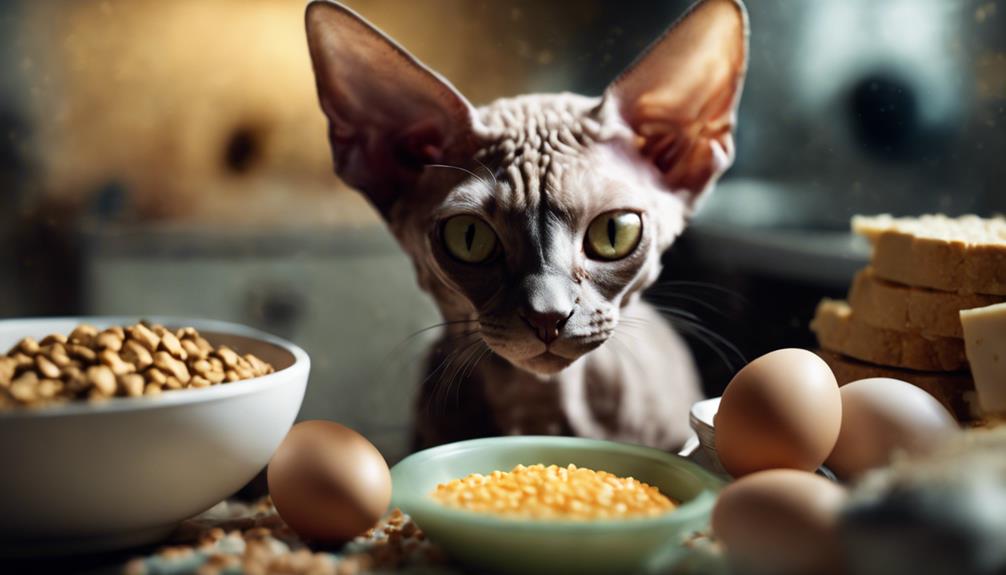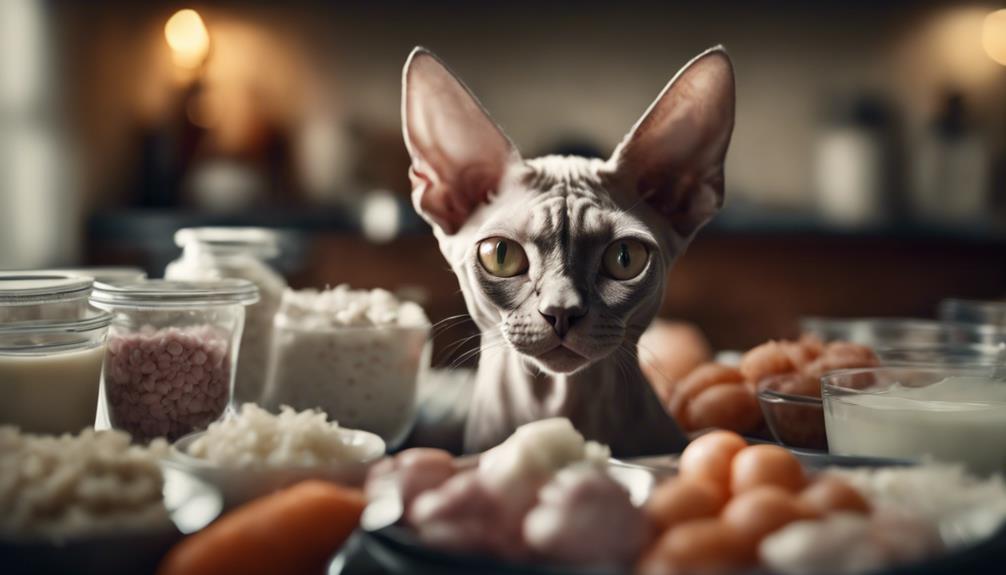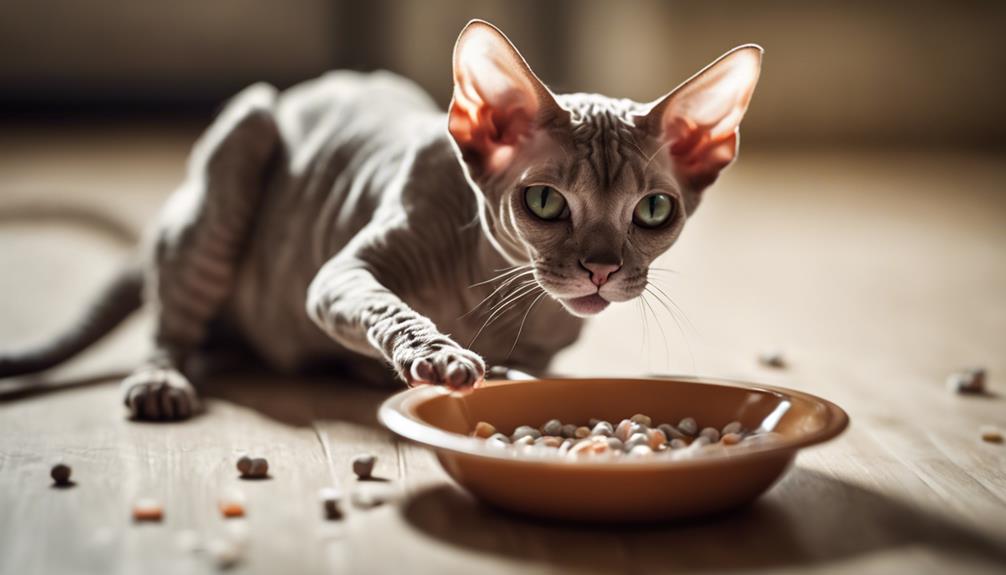Highland Fold and Scottish Fold are two cat breeds that are often confused with each other. While they do share some similarities, they are not the same breed. In this article, we will explore the differences and similarities between Highland Fold and Scottish Fold cats.
Both Highland Fold and Scottish Fold cats are known for their unique ears that fold forward and down. However, the main difference between the two breeds is their coat length. Scottish Folds have short hair, while Highland Folds have long hair. Additionally, Highland Folds are sometimes referred to as Scottish Fold Longhairs. Despite these differences, both breeds share the same genetic mutation that causes their ears to fold.
What is a Scottish Fold?
The Scottish Fold is a cat breed that originated in Scotland in the 1960s. It is a domestic cat with a unique genetic mutation that causes its ears to fold forward and downward, giving it an adorable and distinctive appearance. The breed is characterized by its round eyes, short coat, and placid personality. Scottish Folds are known for their affectionate nature and love to be around their owners.
Appearance
Scottish Folds are medium-sized cats with a round head, round eyes, and a short, dense coat. Their most distinctive feature is their folded ears, which make them look like they are wearing a beret. They have a sturdy build with a broad chest and short, strong legs. Scottish Folds come in a variety of colors, including white, black, blue, cream, and red.
Personality
Scottish Folds are known for their placid and affectionate personality. They are very social cats and love to be around their owners. They are not particularly active and prefer to lounge around the house. They are also very good with children and other pets. Scottish Folds are not very vocal, but they will let you know when they want attention.
Health Issues
Like all cat breeds, Scottish Folds are prone to certain health issues. One of the most common health issues in Scottish Folds is cardiomyopathy, a disease that affects the heart muscle. This disease is believed to be linked to the genetic mutation that causes the ears to fold. Scottish Folds are also prone to polycystic kidney disease, a genetic disorder that can lead to kidney failure.
To address these health issues, some breeders have allowed allowable outcrosses with other breeds, such as the American Curl, British Shorthair, British Longhair, and Siamese. This selective breeding has helped to reduce the incidence of health issues in Scottish Folds.
In addition to these health issues, Scottish Folds are also prone to osteochondrodysplasia, a condition that affects the bones and can cause joint pain and lameness. This condition is more common in longhaired Scottish Folds.
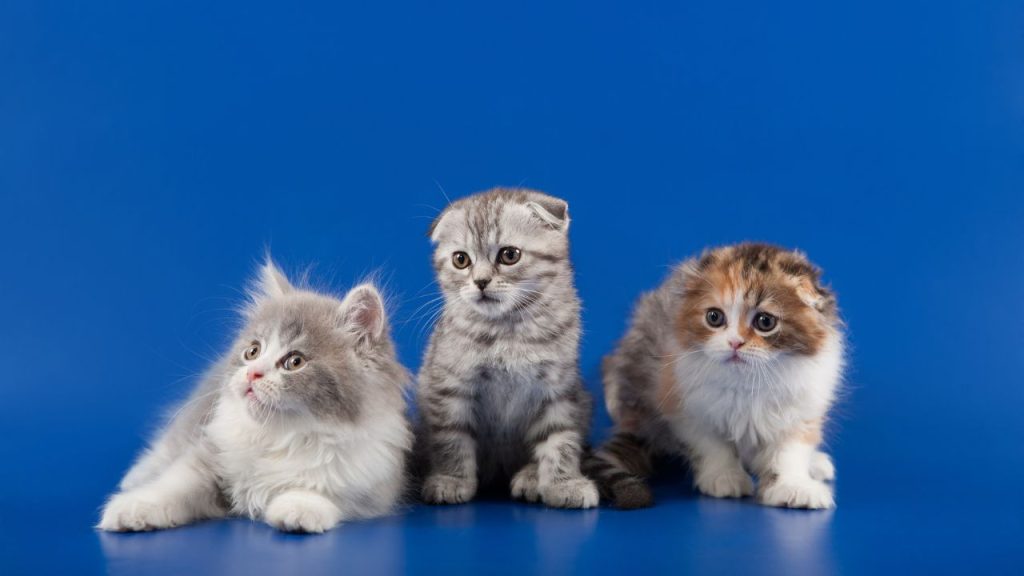
Shedding
Scottish Folds have a short, dense coat that requires minimal grooming. They shed moderately, but regular brushing can help to reduce shedding. Longhaired Scottish Folds may require more grooming to prevent matting and tangling.
Overall, Scottish Folds are a unique and lovable breed with a distinctive appearance and affectionate personality. While they may be prone to certain health issues, responsible breeding and regular veterinary care can help to keep them healthy and happy.
What is a Highland Fold?
The Highland Fold is a cat breed that is often confused with the Scottish Fold. While both breeds share some similarities, they are distinct from each other in several ways.
Appearance
The Highland Fold has a round head and round eyes, which gives it a cute and cuddly appearance. Its most distinctive feature is its folded ears, which are caused by a genetic mutation. The breed has a short coat, which sheds moderately, and comes in a variety of colors and patterns. The longhaired variety is known as the Highland Straight.
Personality
Highland Folds are known for their placid and affectionate personalities. They are social cats that enjoy attention and are good with children and other pets. They are not as talkative as some other breeds, but they will often communicate with their owners through chirps and trills.
Health Issues
As with any cat breed, Highland Folds are prone to certain health issues. One of the most common is cardiomyopathy, which is a disease of the heart muscle. They are also susceptible to polycystic kidney disease, which can cause kidney failure. Additionally, some Highland Folds may develop osteochondrodysplasia, which is a condition that affects the growth and development of bones.
Allowable Outcrosses
The Highland Fold is a relatively new breed, and as such, it has allowable outcrosses to other breeds. The most common outcross is the British Shorthair, which helps to maintain the breed’s round head and body type. Other allowable outcrosses include the American Curl, the British Longhair, and the Siamese.
In conclusion, while the Highland Fold may share some similarities with the Scottish Fold, it is a distinct breed with its own unique characteristics and traits. As with any cat breed, it is important to be aware of the potential health issues and to provide proper care and attention to ensure a happy and healthy life for your pet.
What are the Differences Between Highland Fold and Scottish Fold?
When it comes to cat breeds, the Highland Fold and Scottish Fold are often compared and sometimes confused. While they may share some similarities, there are several differences between the two breeds that are worth noting.
Physical Differences
One of the most obvious differences between Highland Fold and Scottish Fold cats is their coat. Scottish Folds have short hair that is dense and soft, while Highland Folds have a long, silky coat. Highland Folds also tend to be larger in size than Scottish Folds, with a more rounded head and round eyes that give them an owl-like appearance.
Another physical difference between the two breeds is their ears. Scottish Folds have ears that fold forward and downward, while Highland Folds have ears that fold backward and downward. This peculiarity is due to a genetic mutation that affects the cartilage in the ear.
Personality Differences
Highland Folds and Scottish Folds also differ in terms of their personality. Scottish Folds are known for being calm and placid, while Highland Folds are more outgoing and curious. Scottish Folds tend to be more vocal and attention-seeking, while Highland Folds are more independent and selective with their affection.
Health Differences
Both Highland Folds and Scottish Folds are prone to certain health issues due to their genetic mutations. Scottish Folds are at risk for cardiomyopathy, a heart disease that affects the muscles of the heart. Highland Folds, on the other hand, may develop joint disease due to their larger size and bone structure.
To maintain their health, both breeds require quality food and nutritionary control, regular interactive play, and attention to grooming. Highland Folds need to be brushed regularly to prevent tangles and mats in their long fur, while Scottish Folds require less maintenance due to their short hair.
In terms of breeding, Scottish Folds have allowable outcrosses with American Curls and British Longhairs, while Highland Folds have allowable outcrosses with Siamese cats. Both breeds have small litters due to their genetic mutations, and breeders must be careful to avoid breeding cats that carry the same genetic mutations to prevent the development of osteochondrodysplasia (OCD) or other health issues.
Overall, while Highland Folds and Scottish Folds share some similarities, they have distinct differences in their physical appearance, personality, and health. It is important for potential cat owners to understand these differences before choosing a breed that is right for them.
Care and Grooming for Highland Fold and Scottish Fold
When it comes to caring for Highland Fold and Scottish Fold cats, proper grooming, nutrition, and healthcare are essential. These cats are generally easy to care for, but they do require some special attention due to their unique physical characteristics. In this section, we will discuss the specific care and grooming needs of these two breeds.
Grooming
Both Highland Fold and Scottish Fold cats have short, dense coats that require minimal grooming. Regular brushing with a quality comb or brush will help to remove loose hair and prevent tangles. These cats are prone to developing mats around their ears, so it is important to keep the area clean and well-groomed.
Highland Fold cats should be groomed twice a week to prevent or remove mats and tangles. The only other grooming they need is regular nail trimming, ear cleaning, and tooth brushing. Scottish Fold cats, on the other hand, may require more frequent grooming due to their longhair variety. They should be brushed once a week to keep their coat in good condition.
Nutrition
Proper nutrition is essential for the overall health and well-being of Highland Fold and Scottish Fold cats. It is important to feed them a quality food that is specifically formulated for their age and activity level. Nutritionary control is especially important for these cats, as they are prone to obesity and joint disease.
Interactive play is also important for these cats, as it helps to keep them active and engaged. Providing them with toys and scratching posts can help to prevent destructive behavior and promote exercise.
Healthcare
Both Highland Fold and Scottish Fold cats are generally healthy and have a lifespan of 9-12 years. However, they are prone to certain health issues, such as cardiomyopathy, OCD, and osteochondrodysplasia. It is important to take your cat to the vet regularly for check-ups and to keep up with their vaccinations.
Highland Fold and Scottish Fold cats are also difficult to breed due to their genetic mutations. As a result, they may have small litters and be prone to certain health issues. It is important to research and choose a reputable breeder if you are considering getting one of these cats.
In conclusion, Highland Fold and Scottish Fold cats are outgoing, curious, and affectionate cats that require minimal maintenance. However, it is important to provide them with proper grooming, nutrition, and healthcare to ensure that they live a long and healthy life. By following these guidelines, you can enjoy the company of these furry owls with their round heads and big round eyes for years to come.

